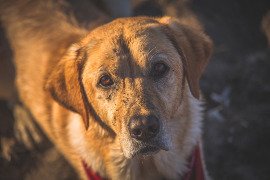 It is a familiar thing for pets – especially dogs – to have a favourite toy. You know the one; it’s old, full of holes, the stuffing is missing, and it probably smells – a lot. But as a loving pet owner, it may be difficult to imagine taking away your dog’s best stuffy friend.
It is a familiar thing for pets – especially dogs – to have a favourite toy. You know the one; it’s old, full of holes, the stuffing is missing, and it probably smells – a lot. But as a loving pet owner, it may be difficult to imagine taking away your dog’s best stuffy friend.
The things our pets interact with, like toys, beds, and clothing, will take on their unique smell. As our dogs lie in their beds every night, and gum away on various toys throughout the day, both subtle and not-so-subtle dog smells are an everyday part of pet ownership.
While we love our pets, and we may even love their unique smell, it may not be pleasant to others. In order to keep your pet and your home free from dirty dog smells, some simple housekeeping may be in order.
Your Dog’s Mouth
Whether it’s licking your face, chewing on toys, or eating out of the trash, your dog’s mouth is on a lot of surfaces every day. A dog with poor dental hygiene will spread his foul-mouth odour on everything he touches. Chew toys soiled by dog saliva can be a big problem for controlling odours around the home.
But isn’t a dog’s mouth cleaner than a human’s?
A common belief among pet owners is dogs have exceptionally clean mouths. While this is true to a degree, a dog’s mouth can also be very dirty place. Dogs pick up bacteria from all sorts of grimy places; eating out of the trash and drinking from the toilet, for example. Poor dental health is a major problem in dogs that would be otherwise described as healthy. Here’s a stunning fact: by the age of four, eighty percent of dogs will show signs of dental disease.
The healthier the mouth, the healthier the pooch. Dogs with healthy, clean mouths rarely give off unpleasant odours. Inspecting your dog’s mouth regularly is your first line of defense in identifying dental issues. There are many dental health solutions available; whether it be dental powders added to food, liquids added to water, or the traditional toothbrush and paste, consistency is key.
Your Dog’s Skin and Coat
The degree of smell from a dog can be greatly dependent on the quality of their skin and coat, and their overall general health. Dermatological problems due to yeast, bacteria, allergies, sensitivities, and hot spots, can result in a smellier pooch, which means a smellier home. Coats and beds may need to be washed more frequently until the root cause is addressed and corrected.
Skin and coat problems in dogs are very common, and thankfully, most of the time can be resolved easily and permanently. Consider speaking with a pet health professional to find healthy long-term solution to skin problems.
Your Dog’s Stuff
As toys and beds get used, sooner or later they will indeed get smelly. These smells can put a funk in the air, and will most certainly be noticed by guests in your home. Fortunately, most dog beds, toys, and apparel are washable, making it easy to keep things smelling fresh as needed. Try adding a small amount of a pet-friendly enzymatic stain and odour cleaner when washing for an extra odour-busting boost. Traditional laundry detergents may not have the strength required for a deep clean.
And for those old, worn-out toys lying around the home? It’s time to let them go.
Brandon Forder – also known as The Pet Expert – is vice-president of Canadian Pet Connection, a family-owned and -operated business located in Meaford. He has over twenty years’ experience specializing in pet nutrition, behaviour and lifestyle. Canadian Pet Connection is an industry leader committed to providing their clients with the highest levels of personal, attentive service. Learn more at www.CanadianPetConnection.ca.










